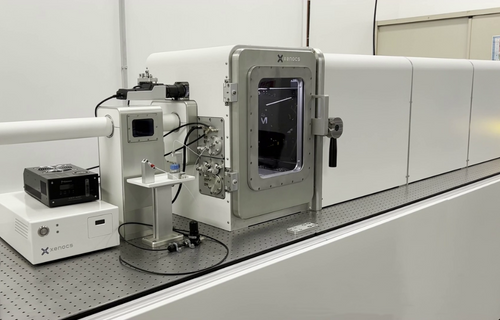REGIONE LOMBARDIA AND POLITECNICO DI MILANO WORKING TOGETHER TO SUPPORT THE OPPORTUNITIES OF INDUSTRY 4.0

The new laboratories for research, innovation and technology transfer of the Politecnico di Milano, developed thanks to the collaboration agreement with Regione Lombardia, have been inaugurated today.
The aim of the laboratories is the design of advanced and sustainable materials to face two great challenges for advanced manufacturing: the development of new solutions for 3D printing in the biomedical field and the study of innovative solutions for energy storage in support of energy transition. The laboratories are among the most advanced infrastructures in Europe for the study of nanomaterials, thanks to the installation of one of the first 3D bioprinting systems in the world for vascularised tissues and state-of-the-art X-ray labs (Xeuss 3.0 from Xenocs).
“Laboratories are the soul and heart of research. They are structures of excellence that allow our university to position itself among the best in Europe and to grow in our territory by focusing on innovation as a characterising element. Lombardy, one of the four engines of Europe, invests in development looking ahead to great challenges such as advanced materials, which represents an essential advantage for the growth of the manufacturing industry. This agreement further strenghten the collaboration between Politecnico di Milano and Regione Lombardia, which represents a solid understanding on cutting-edge issues,”
says Prof. Donatella Sciuto, Deputy Vice Rector of Politecnico di Milano with responsibility for Research and Rector elected for the six-year term 2023/2028.
“With this intervention, which Regione Lombardia has supported with 1.7 million Euros, we have given our university system the opportunity to equip itself with cutting-edge equipment and unique technologies in Europe. Thanks to it, we can compete with the best international research centres,”
stated Fabrizio Sala, Vice-President of Regione Lombardia.
Within the laboratories it will be possible to design advanced, innovative and sustainable materials through the so-called Crystal Engineering, namely an investigation on the crystalline structure at the service of optimising the properties of advanced materials, which are relevant for the most advanced technological applications. Specifically, the laboratories are specialised in 3D bioprint and in electrochemical technologies for energy storage.
Source: Politecnico di Milano news
